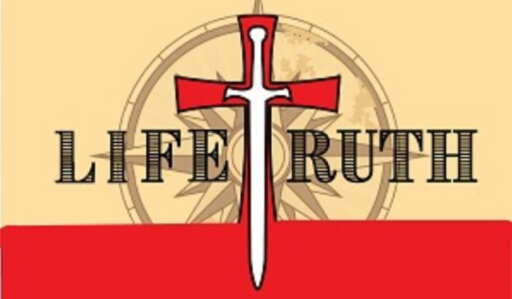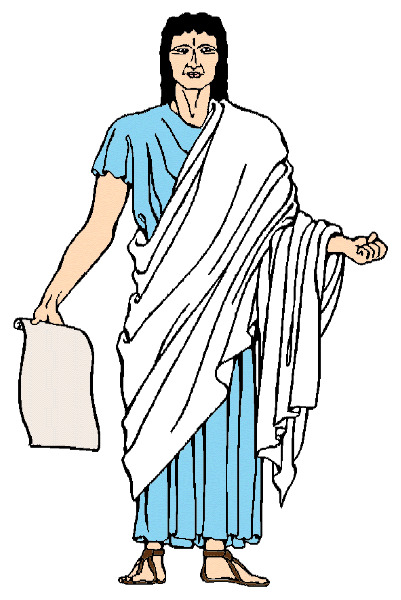we have our old crew back in the studio. keith is joined by both Nathan and Chris. we spend a little time getting caught up, and talking about recent episodes on the Christian Podcast Community. In particular, an episode of Doctrine Matters dealing with modesty.
We touch base, but don’t get too deep with a topic covered on a recent episode by Andrew Rappaport on the Jesus understands us commercials. At this point Nathan hasn’t listened to the episode yet, and Keith is a pretty poor critic of visual media. There is also a matter of comedians taking over Sunday morning worship services. never a good idea, no matter how clean the comedian’s routine may be, or how strong his faith may be.
on disrespect, or the fifth commandment, we dive into the depths of this commandment with the promise.
as we have been doing in examining these commands, Keith guides the conversation using questions from the Westminster catechism.
while these questions, or any other statements of faith can be useful, Nathan points out that we should never add to, or stray from exactly what Scripture is saying. Still, it helps to round out the topic and shed light on relationships between parent and child. The family unit beings the granular level of any government, and frequently use by God throughout Scripture to model relationship with himself, this is definitely a topic to understand well.
Here are the catechism questions, and their answers extracted directly from the Westminster catechism.
123. Which is the fifth commandment?
Answer: The fifth commandment is, honor thy father and thy mother: that thy days may be long upon the land which the Lord thy God giveth thee.
124. Who are meant by father and mother in the fifth commandment?
Answer: By father and mother, in the fifth commandment, are meant, not only natural parents, but all superiors in age, and gifts; and especially such as, by God’s ordinance, are over us in place of authority, whether in family, church, or commonwealth.
125. Why are superiors styled Father and Mother?
Answer: Superiors are styled Father and Mother, both to teach them in all duties towards their inferiors,
like natural parents, to express love and tenderness to them, according to their several relations; and to work inferiors to a greater willingness and cheerfulness in performing their duties to their superiors, as to their parents.
127. What is the honor that inferiors owe to their superiors?
Answer: The honor which inferiors owe to their superiors is, all due reverence in heart, word, and behavior; prayer and thanksgiving for them; imitation of their virtues and graces; willing obedience to their lawful commands and counsels, cue submission to their corrections; fidelity to, defense, and maintenance of their persons and authority according to their several ranks, and the nature of their places; bearing with their infirmities, and covering them in love, that so they may be an honor to them and to their government.
128. What are the sins of inferiors against their superiors?
Answer: The sins of inferiors against their superiors are, all neglect of the duties required toward them; envying at, contempt of, and rebellion against, their persons and places, in their lawful counsels, commands, and corrections; cursing, mocking, and all such refractory and scandalous carriage, as proves a shame and dishonor to them and their government.
129. What is required of superiors towards their inferiors?
Answer: It is required of superiors according to that power they receive from God, and that relation wherein they stand, to love, pray for, and bless their inferiors, to instruct, counsel, and admonish them; countenancing, commending, and rewarding such as do well; and discountenancing, reproving, and chastising such as do ill; protecting, and providing for them all things necessary for soul and body: and by grave, wise, holy, and exemplary carriage, to procure glory to God, honor to themselves, and so to preserve that authority which God hath put upon them.
130. What are the sins of superiors?
Answer: The sins of superiors are, besides the neglect of the duties required of them, an inordinate seeking of themselves, their own glory, ease, profit, or pleasure, commanding things unlawful, or not in the power of inferiors to perform; counselling, encouraging, or favoring them in that which is evil; dissuading, discouraging, or discountenancing them in that which is good; correcting them unduly; careless exposing, or leaving them to wrong, temptation, and danger; provoking them to wrath; or any way dishonoring themselves, or lessening their authority, by an unjust, indiscreet, rigorous, or remiss behavior.
131. What are the duties of equals?
Answer: The duties of equals are, to regard the dignity and worth of each other, in giving honor to go one before another; and to rejoice in each other’s gifts and advancement, as their own.
132. What are the sins of equals?
Answer: The sins of equals are, besides the neglect of the duties required, the undervaluing of the worth, envying the gifts, 3
grieving at the advancement of prosperity one of another; and usurping pre-eminence one over another.
133. What is the reason annexed to the fifth commandment, the more to enforce it?
Answer: The reason annexed to the fifth commandment, in these words, that thy days may be long upon the land which the Lord thy God giveth thee, is an express promise of long life and prosperity, as far as it shall serve for God’s glory and their own good, to all such as keep this commandment.
Podcast: Play in new window | Download (Duration: 52:16 — 47.9MB)
Subscribe: Apple Podcasts | Amazon Music | Podchaser | RSS | More

